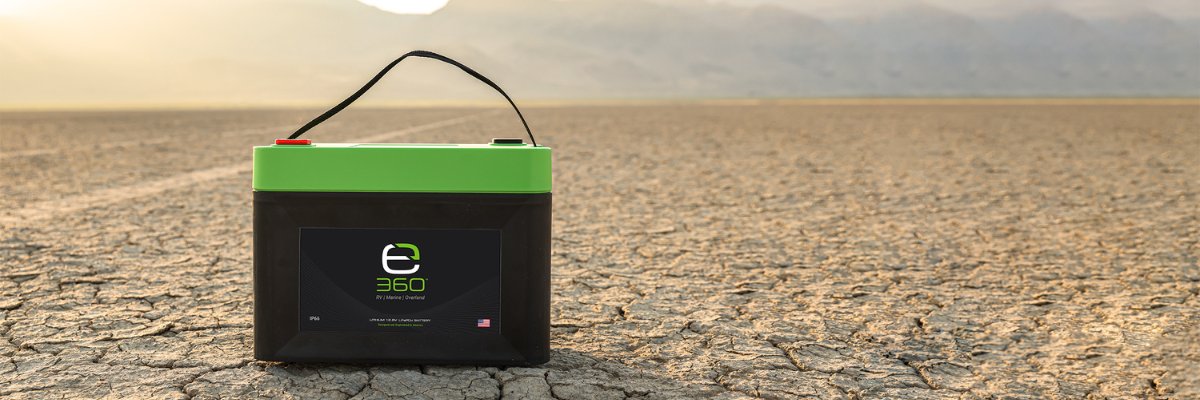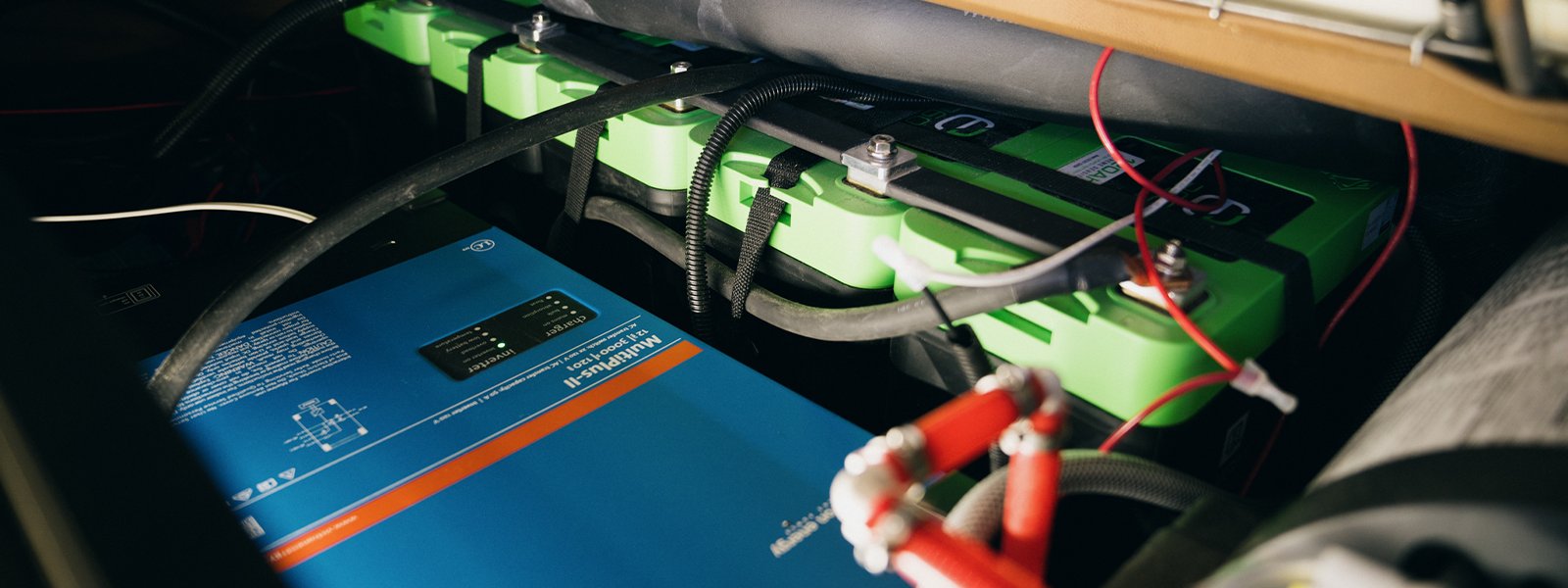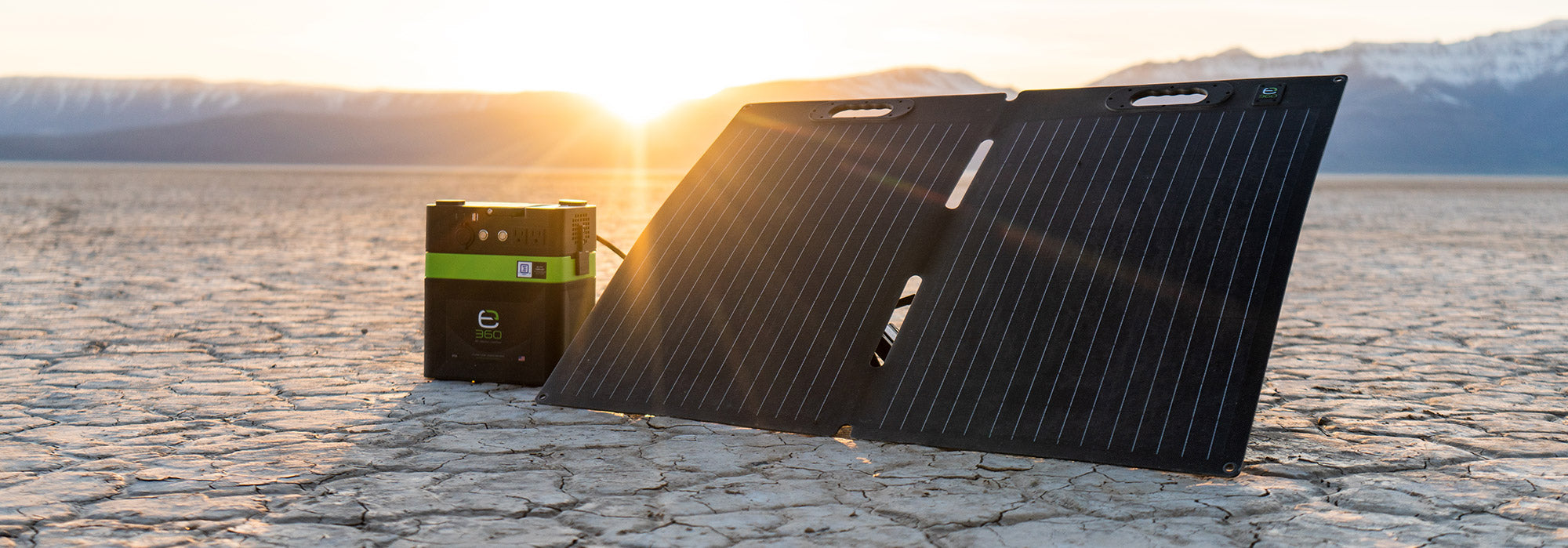From Golf Carts to Uncharted Waters, Discover the Difference of E360 Lithium Battery Power
Expion360 customers are the ultimate thrill-seekers and opportunity-makers. From boondocking out of their vans to spending a day on the golf course, they know the difference lithium battery power makes to the success of their pursuits. Today, we’re looking at what makes lithium the obvious choice compared to traditional battery options, E360’s cutting-edge engineering, and the customer applications we power.
Lithium Battery Power Vs. Traditional Battery Options
Although we’re confident that lithium battery power is the best choice regardless of the application, we always say an informed decision is a lasting one. Read on to compare lithium to more traditional battery power options.
Lithium Iron Phosphate (LiFePO4) Batteries
A type of chargeable lithium-ion battery, LiFePO4 batteries (like Expion360’s) use phosphate and iron as the cathode (electrode) material. Compared to other lithium-ion batteries, LiFePO4’s different chemical compositions make them less toxic with greater chemical and thermal stability. Without the damaging sulfation of other rechargeable batteries, LiFePO4 can safely remain at a partial state of charge. In addition, these batteries integrate seamlessly with solar power solutions to complement an RV's or van’s power system with sustainable, renewable power.
Pros:
- Higher energy density (three times that of lead-acid)
- Fast charging
- Safer
- More stable voltage
- Longer life cycle
- Low discharge rate
- Wider operating temperature range
- More environmentally sustainable
- Versatile installation without the need for ventilation
- No maintenance
Cons:
- More expensive
- Lower nominal voltage range (when compared to other lithium-ion batteries)
Lithium-Ion Batteries
This rechargeable battery solution uses lithium ions to store and release electrical energy. Also known as Li-ion, these batteries are similar to LiFePO4 in their long life cycles, low self-discharge rates, and high energy density.
Pros:
- Higher energy density
- Fast charging
- Longer life cycle
- Low discharge rate
- No memory effect (can charge at any state)
- Lightweight
- Versatile
Cons:
- More expensive
- Sensitive to extreme temperatures
- Experience capacity degeneration
- More harmful to the environment (if not properly disposed)
- Complex charging profiles
- Safety concerns (overheating, fires, and explosions)
Lead-Acid Batteries
Lead-acid batteries are the most well-known batteries on the market, consisting of a lead anode and lead dioxide cathode immersed in a sulfuric acid electrolyte solution. Given their chemical makeup, these batteries are prone to a build-up of lead sulfate, a process called sulfation. While less expensive, they tend to require more maintenance and a lower overall lifecycle.
Pros:
- Less expensive
- Widely available
- Highly recyclable (established programs throughout the U.S.)
- Low discharge rate
Cons:
- Variable capacity
- Low energy density
- Limited lifecycle (200-500, whereas LiFePO4 is 10 times that)
- Require regular maintenance (especially flooded lead-acid)
- Heavier
- Environmental concerns
- Safety concerns (leaked acid, increased risk of electrical shock, higher chance of explosion or fire)
- Limited charge and discharge rates (lead batteries drain below 50 percent depth to prevent sulfation)
Gel Batteries
These valve-regulated lead-acid (VRLA) batteries immobilize sulfuric acid in a gel-like electrolyte (hence the name). The composition changes in these batteries tend to make them safer and more environmentally friendly than traditional (flooded) lead-acid batteries. Yet, they require very specific charging to keep them operational. The gel substance, likewise, doesn’t allow for as effective rapid ion movement.
Pros:
- Spill-proof
- Deep cycling capabilities
- Longer lifespan than flooded lead-acid (less than LiFePO4)
- No maintenance
- Low gassing
Cons:
- Low energy density
- Sensitive to temperature swings
- Specific charging profiles
- Limitations to high-current performance
Absorbent Glass Mat (AGM) Batteries:
Another type of sealed lead-acid, AGM batteries use an absorbed glass mat separator between the lead plates and electrolyte. Like their other sealed counterpart, AGM batteries are maintenance-free and spill-proof. Additionally, they can be mounted in a number of orientations.
Pros:
- Spill-proof
- Deep cycling capabilities
- Longer lifespan than flooded lead-acid (less than LiFePO4)
- No maintenance
- Low gassing
- Low self-discharge rate
- High current output
- Fast charging
- Perform well in cold weather
Cons:
- More expensive than flooded lead acid
- Limited depth of discharge
- Sensitive to high heat and other harsh environments
- Specific charging profiles
Expion360’s LiFePO4 Changes the Way We Power
From golf carts to uncharted waters, Expion360 provides reliable, efficient lithium battery power. Our LiFePO4 batteries include the highest-grade lithium iron phosphate that we’ve encased in steel for unparalleled reliability, safety, and stability. We’ve protected and enhanced traditional LiFePO4 with a revolutionized case design, the highest safety compliance, a smart battery management system, and a reinforced cell pack.
As a result, our batteries:
- Are three times more energy dense to power more appliances for longer.
- Are 50 percent lighter to lighten loads and improve mpg.
- Have three times the recovery to get you on to adventure faster.
- Have ten times the life cycle to increase your investment.
The Industries We Support
Our goal is to help customers explore with confidence, whether that’s more energy density for trolling motors or a “house battery” that can help them thrive off-grid.
RV: Expion360 batteries give you the energy and space efficiency you need to take your home on the road.
Overland: With the power to keep appliances running and the peace of mind to keep you exploring, our lithium battery power is made for Overlanding.
Marine: The unpredictable nature of marine life requires a reliable battery made for the harshest conditions.
Golf: Add some power to your play with our revolutionary Bluetooth golf cart batteries.
Trust Lithium Power to Explore New Sights
Since 2016, Expion360 has provided customers with best-in-class lithium battery power solutions across industries—from RV to golf. We hope this deep dive into the different power solutions showcases the incredible capability of lithium iron phosphate and how E360 is synonymous with reliable power.
Shop our expertly engineered line of batteries here.





